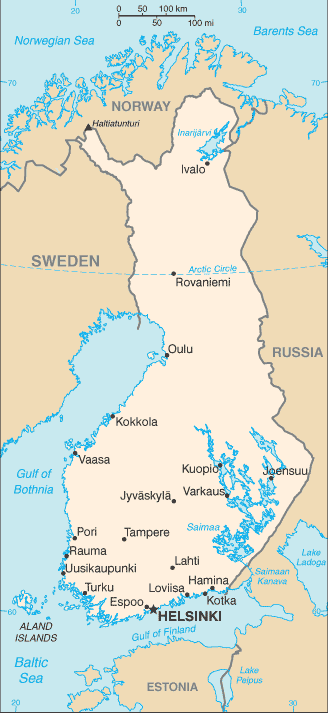Exporting to Nigeria


Nigeria Country Profile
Official Name (Local Language) Federal Republic of Nigeria
Capital Abuja
Population 219,463,862
Currency Nigerian Naira
GDP $1,013.53 billion
Languages English; Hausa; Yoruba; Igbo; Fulani
Phone Dial In 234
Nigeria Imports Profile
Imports ($m USD) 31,270
Number of Import Products 4,010
Number of Import Partners 199

Nigeria Economic Statistics
Government Website | https://statehouse.gov.ng/ |
| Sovereign Ratings | https://countryeconomy.com/ratings/nigeria |
| Central Bank | Central Bank of Nigeria |
| Currency USD Exchange Rate | 383.5 |
| Unemployment Rate | 16.5% |
| Population below poverty line | 40.1% |
| Inflation Rate | 11.3% |
| Prime Lending Rate | 15.4% |
| GDP | $1,013.53 billion |
| GDP Pro Capita (PPP) | $4,900 |
| Currency Name | Nigerian Naira |
| Currency Code | NGN |
| World Bank Classification | Lower Middle Income |
| Competitive Industrial Performance | 116/138 |
| Corruption Perceptions Index | 154/180 |
| Ease of Doing Business | 131/190 |
| Enabling Trade Index | 127/136 |
Access trade, receivables and supply chain finance
We assist companies to access trade and receivables finance through our relationships with 270+ banks, funds and alternative finance houses.
Get StartedExporting to Nigeria
Nigeria is the second-biggest economy in Africa and one of the most populous countries in the world. Nigeria’s main imports are oil, wheat and other foodstuffs, and machinery.
It is the world’s 6th largest crude oil exporter, and over 90% of its exports are oil; however, it has few refinery facilities, so it imports most of its refined petroleum. Nigeria has a longstanding trade relationship with Europe, and has been recently expanding its ties with India and China. The latter is now its biggest source of imports, followed by Belgium, the Netherlands, and India.
Macroeconomic measures enacted in early 2024, including a decrease of a petrol fiscal subsidy and reforms to unify FX markets and liberalise exchange rates, might lead to a short-term decrease in growth but should make the economy more stable and resilient in the long term. Nigeria imports much of its food despite the long history of its agricultural sector and the government’s attempts to bolster it, and recent geopolitical issues have led to shortages and rising food prices. In 2024, the government decided to suspend import taxes on many food items, including wheat and corn, to battle food inflation, which has been welcomed by exporters.
Nigeria is a democratic country with a strong electoral system and strong civil liberties. Corruption is prevalent on all levels of government, and some foreign investors in cryptocurrency and tech have been targeted by the government over money-laundering claims. Popular unrest has never spilled over into significant violence and is expected to further wane once the economic reforms have their intended effect; aid and investment from both the West and China will likely boost non-oil revenue and trade in the future.
Exporting to Nigeria: What is trade finance?
Export finance is a revolving facility which lenders offer financing options– it enables businesses to buy goods and can help ease cash flow problems.
Often, an alternative financier will fund all of the cost of the goods, including charges (e.g. taxes).
Trade finance offers benefits over more traditional bank funding such as bridging mortgages or business loans. Trade finance provides quick funding without affecting existing bank relationships.
How does it work?
If you’re a company importing or exporting goods around the world, then a trade finance facility would help you to fund this through offering a LC (letter of credit) or some form of cash advance.
I’m looking to export to Nigeria, how can Trade Finance Global help, and how does it work?
If you’re looking to export inventory to other countries, you may require finance for exporting, which is a commercial agreement between you (the exporter), and the importer. An alternative financier will advance you the cost of producing the stock supplies that you are exporting (as a loan), either once you have sent the goods, or before producing them. Once the importer has received the stock supplies and pays you for the import, you will repay the advance from the export bank over an agreed period.
Chart Showing GDP Growth Compared to rest of world
GDP Composition for Nigeria
Agriculture
21.1%
cocoa, peanuts, cotton, palm oil, corn, rice, sorghum, millet, cassava (manioc, tapioca), yams, rubber; cattle, sheep, goats, pigs; timber; fish
Industry
19.4%
crude oil, coal, tin, columbite; rubber products, wood; hides and skins, textiles, cement and other construction materials, food products, footwear, chemicals, fertiliser, printing, ceramics, steel
Services
59.5%
Map
Top 5 Import Partners
| Country | Trade | % Partner Share |
| China | 5,848 | 18.70 |
| Belgium | 4,023 | 12.86 |
| Netherlands | 2,876 | 9.20 |
| United States | 2,494 | 7.98 |
| India | 1,529 | 4.89 |
Top 5 Import Products
| Export Product | Number |
| Petroleum oils, etc, (excl. crude); preparation | 27.4% |
| Durum wheat | 4.3% |
| Granite, merely cut into a square or rectangula | 2.3% |
| Raw cane sugar, in solid form | 1.9% |
| Automobiles with diesel engine displacing more | 1.9% |
Local Partners
- All Topics
- Nigeria Trade Resources
- Export Finance & ECA Topics
- Local Conferences



















